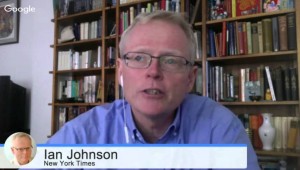
China’s central government and the Vatican closed a deal on appointments of Catholic bishops in China, causing debate among the already divided Catholics in the country, writes journalist Ian Johnson, author of The Souls of China: The Return of Religion After Mao at the New York Times. The way the Communist-ruled state church might integrate with the Roman Catholic church might not please all Catholics, he writes.
Ian Johnson:
Several underground bishops in China, including two popular bishops in staunchly Catholic parts of the country, are expected to step down to make way for the bishops appointed by Beijing over the past decade whom the pope has agreed to recognize. In exchange, the pope is gaining some role in the appointment of new bishops. There are about 100 bishops and prelates in China, including underground and approved, and a dozen vacant positions.
Exactly how this will work is unclear. Both sides have described the agreement signed on Saturday as preliminary, and neither has released details. But some informal veto system seems likely. The Vatican could reject candidates suggested by the Chinese authorities, although mainly through quiet consultation rather than formal voting.
In the long run, diplomatic ties could be restored between Beijing and the Vatican.
Some Chinese Catholics see this as helping a church that has been unable to respond to changing times. China is rapidly urbanizing, for example, but many rural Catholics find little outreach when they migrate to take jobs in the cities. A unified church could address that.
“I think if it helps unite the church, then it’s a good thing,” said You Yongxin, a Catholic writer based in the eastern Chinese city of Fuzhou. “If the pope is convinced he can get good bishops appointed through this deal, then we have to trust that he will.”
Indeed, if carried out as advertised, the deal would give the church a formal role in appointing clergy members in party-controlled churches in China for the first time in nearly 70 years. That would be a significant concession by the government. By contrast, Beijing doesn’t give the spiritual leader of Tibetan Buddhists, the Dalai Lama, any say over the appointment of monks or abbots.
Still, the deal came as a shock for many Chinese Catholics.
Paul Dong Guanhua, a self-ordained bishop in the underground church in the northern Chinese city of Zhengding, said it made no sense that Beijing would sign on to any deal that could strengthen the church.
“Well, if there’s an agreement, there’s an agreement,” he said in a telephone interview. “But I find it absurd, and I wonder how many other Catholics can agree with this decision.”
Other prominent underground clergy members, like Guo Xijin, one of the bishops who reportedly would have to step down under the deal, could not be reached for comment. In an interview earlier this year, Bishop Guo told The New York Times that he would step down if asked by the pope.
Rome will also have to win over skeptical Catholics in Taiwan and Hong Kong, said Lawrence C. Reardon, a professor of political science at the University of New Hampshire who studies Beijing-Vatican relations.
Ian Johnson is a speaker at the China Speakers Bureau. Do you need him at your meeting or conference? Do get in touch or fill in our speakers’ request form.
Are you looking for more stories by Ian Johnson? Do check out this list.
